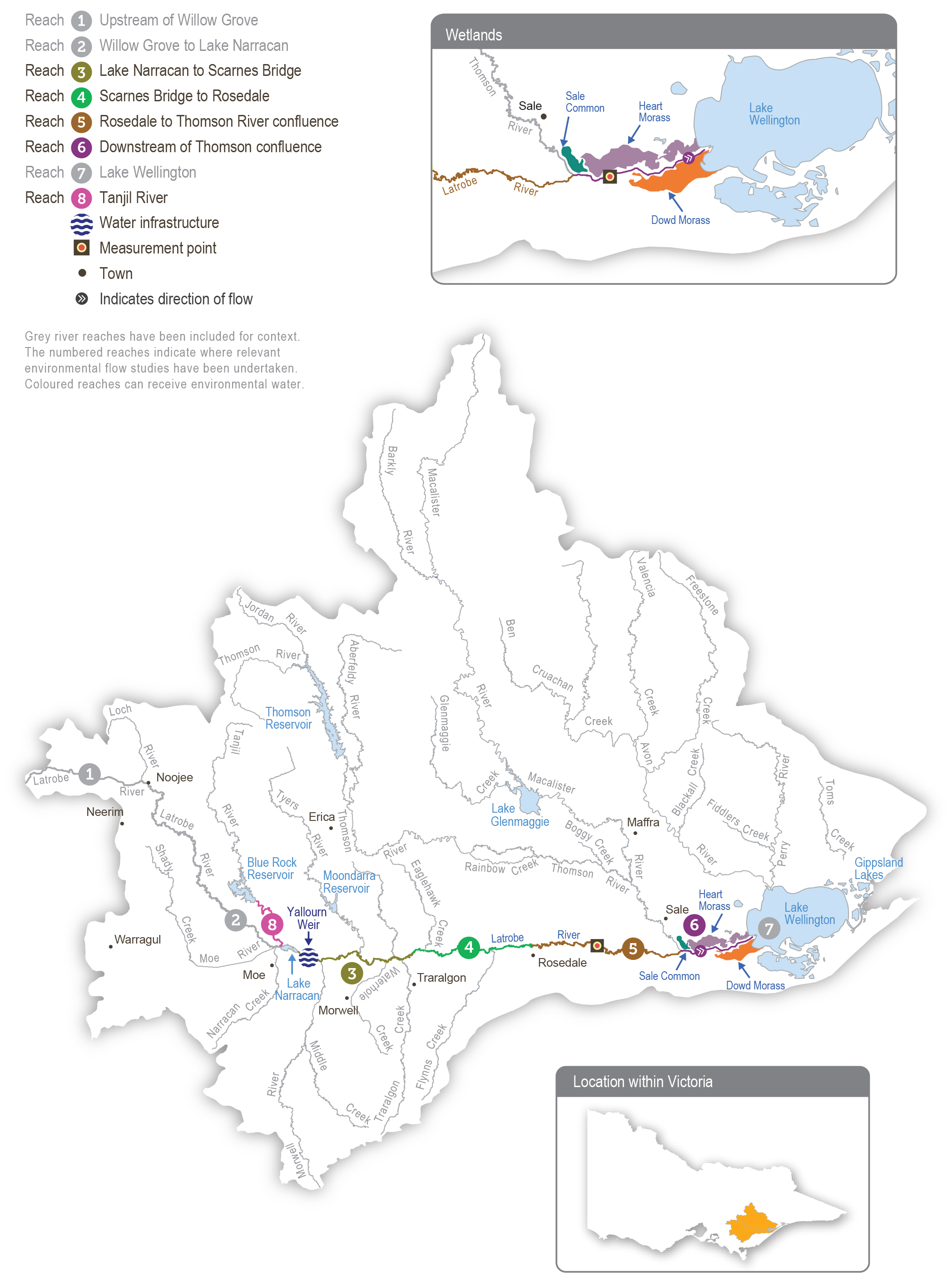GLaWAC is developing a vision for the wetlands that aligns with the Gunaikurnai Whole-of-Country Plan. Key aspects of the vision include:
- healthy Country: reflecting the spiritual and cultural values of the Gunaikurnai custodians; healthy Country contributes to the wellbeing of the Gunaikurnai
- water access: access to water is crucial for many cultural values, including identity and relational values, future economic values and place values, among many others. Access to water, through ownership or management, means that water is made available to the Gunaikurnai on the Latrobe and Thomson systems to provide freshwater to the wetlands. Every effort should be made to maintain freshwater-dependent values, which in turn deliver cultural values
- cultural and economic use: returning to cultural practices and Gunaikurnai-informed management at the lower Latrobe wetlands is key to returning to a more freshwater habitat for cultural uses and cultural species. It will also provide for water- based tourism, cultural education and ecotourism (camping) experiences
- connection: GLaWAC takes its responsibility to work closely with the people it represents on management decisions concerning Country and the health of Country very seriously. Gunaikurnai cultural obligations reflect Gunaikurnai views on healthy Country and, in turn, help the Gunaikurnai continue their ongoing connection to the land and waters of Country
- climate change: the Gunaikurnai have cared for Country for thousands upon thousands of years through many cycles
of climatic change, and they understand how to manage the landscape as it too changes. When cared for using traditional knowledge, Country can be healed. Mitigation of climate change impacts affecting the lakes, rivers and other waterways of the lower Latrobe wetlands can be effective with resources and empowerment provided to the Gunaikurnai.
Increasing the involvement of Traditional Owners in environmental flows management and progressing opportunities towards self-determination in the environmental watering program is a core commitment of the VEWH and its agency partners. This is reinforced by a range of legislation and policy commitments, including the Water Act 1989, the Victorian Aboriginal Affairs Framework, the 2016 Water for Victoria, the 2022 Water is Life: Traditional Owner Access to Water Roadmap and in some cases, agreements under the Traditional Owner Settlement Act 2010.
Where Traditional Owners are more deeply involved in the planning and/or delivery of environmental flows for a particular site, their contribution is acknowledged in Table 2.2.3 with an icon. The use of this icon is not intended to indicate that these activities are meeting all the needs of Traditional Owners but is incorporated in the spirit of valuing that contribution.

Watering planned and/or delivered in partnership with Traditional Owners to support cultural values and uses
GLaWAC and West Gippsland CMA are exploring opportunities to align environmental flows with Gunaikurnai outcomes in the lower Latrobe wetlands. In 2023-24, a Gunaikurnai cultural event is planned at Dowd Morass. This event will be jointly managed with WGCMA and will coincide with delivery of water for the environment. The timing of the event will be decided by GLaWAC, after some water quality and fish monitoring.
In early 2023, the West Gippsland CMA met with GLaWAC to discuss 2023-24 environmental watering priorities in the lower Latrobe wetlands, with further engagement planned in the 2023-2024 water year.



